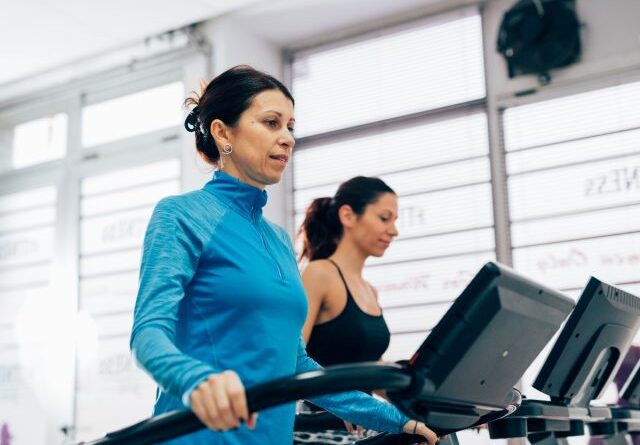8 Common Treadmill Mistakes to Avoid
Walking on a treadmill is a great way to stay active. No matter the time of year or the weather, you can put on your sneakers, jump on the treadmill, and get your steps in. We spoke to a fitness expert who breaks down eight common walking mistakes to avoid so you can get the most out of every workout.
Walking on a treadmill is an excellent way to improve your endurance and cardiovascular health. It is also a great tool to burn calories and achieve your weight loss goals. That being said, making some common mistakes can lead to unpleasant setbacks and even harm. It all depends on using the correct form.
“Poor posture can cause injury,” stress Ellen Thompson, CPTBlink Fitness. “Good alignment reduces stress on joints and muscles, thus reducing the risk of injury. Correct posture improves breathing; standing up straight allows the lungs to expand properly and ensures that you breathe . [get] enough oxygen during your exercise.”
In addition, maintaining proper posture and posture activates the muscles in your core, which prevents slouching. This also helps improve balance and stability, reducing your risk of injury.
Now, let’s get into the most common mistakes to avoid when walking on the treadmill and why they’re big no-nos, according to Thompson.
Holding hands
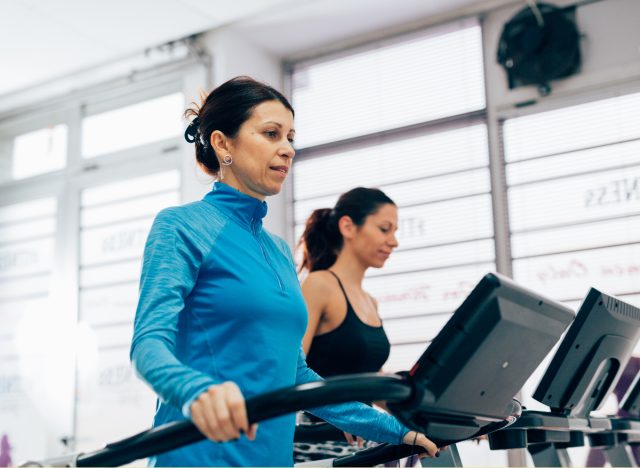

Holding on to the handrails of the treadmill may seem like a smart way to create better stability and balance; However, it can detract from your cardio session.
“It’s durable [the] handrails reduce the effectiveness of your exercise because it reduces the natural activity of your muscles (especially the back and legs), Thompson explains. “It adds an outside edge that’s not that important.”
Not using a natural hand wave
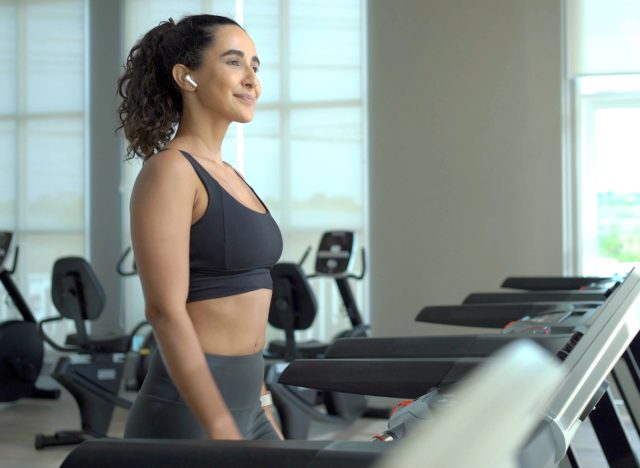

Another common mistake that hinders your progress is not using your natural arm to swing. By placing your arms at your sides, you engage your upper body and turn your walk into a full-body workout.
“[In addition,] Failure to move your arms naturally can disrupt your balance and reduce the effectiveness of your exercise,” says Thompson. This will keep your walking motion smooth and allow you to maintain balance. right.”
Overstriding
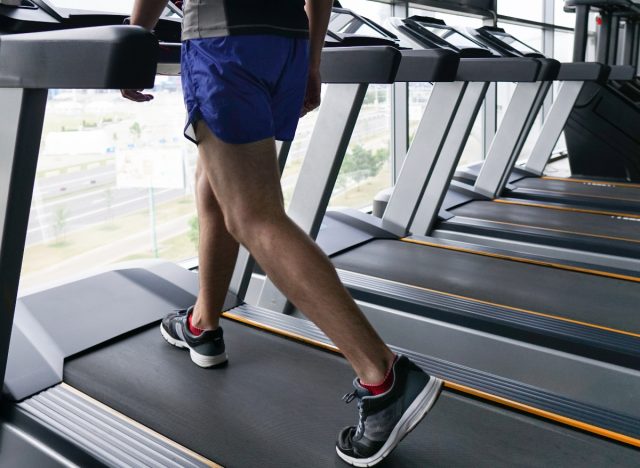

Exaggeration means taking very big steps. This can lead to injury or put unnecessary stress on the hips, knees and lower back. “[Overstriding] it also interferes with your natural range of motion, which can lead to shin splints and other potential injuries,” said Thompson.
Walking too fast or too slow
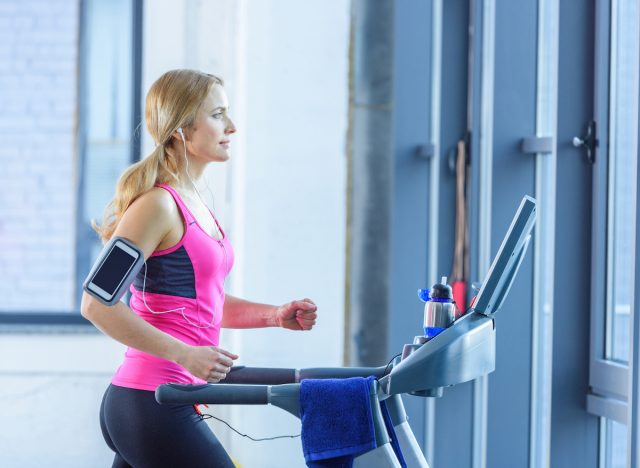

It is important to pay attention to your walking speed. “Moving too fast can cause you to lose control, which leads to a fall or muscle strain,” says Thompson. “Going too slow may not give you the benefits you’re looking for.” For example, walking too slowly may not create enough of a challenge for your cardiovascular system, resulting in burning too few calories.
“Don’t go too fast, too slow, too long, or too short,” Thompson encourages. “A natural pace is the most comfortable and will lead to a more effective workout.”
Leaning forward


Leaning too far forward when walking on the treadmill can compromise your posture and result in discomfort or injury. “This is against proper form and can put unnecessary stress on the lower back,” Thompson explains.
Aim to stand tall while keeping your shoulders back and your abs engaged. Maintaining a straight posture is the name of the game, as it helps reduce stress on your body and gives you more time to move around.
Does not use incline settings
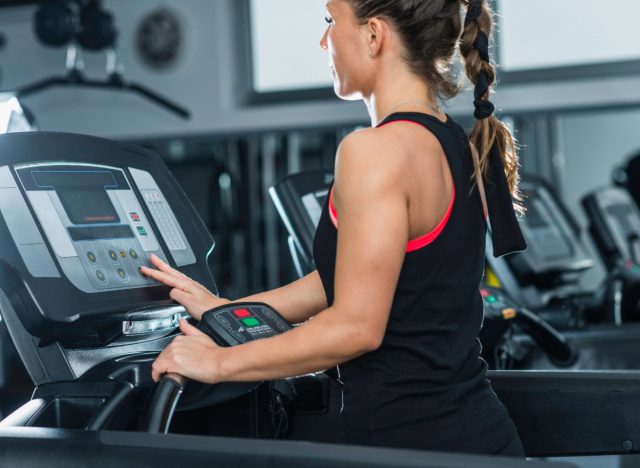

You are doing yourself a disservice by not using the treadmill’s incline settings. “Walking on a flat surface doesn’t challenge your muscles as much as walking on a flat surface,” explains Thompson.
Incorporating exercise routines involves more muscle groups and increases the strength that helps you move forward. It’s a great way to take your workout to the next level without having to change pace too much.
Looking down
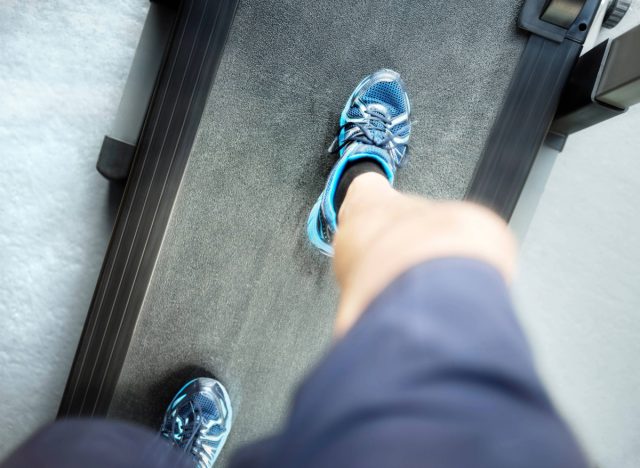

It may be a natural reaction to look down at your feet when walking on the treadmill, but try to avoid this. When you look down, you may assume a hunched position, which can strain your neck. “It also throws off your balance, making you prone to mistakes,” Thompson adds.
Wearing the wrong shoes
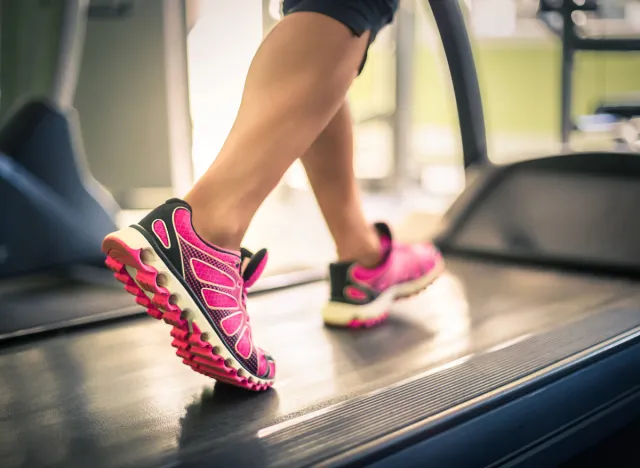

Being equipped with the right shoes is important for successful walking. “The right shoes are important! Shoes that don’t provide the right support or cushioning can lead to injuries, blisters and other foot-related injuries,” Thompson explains.
The right walking shoes should be supportive, breathable, durable, and well-fitting.
#Common #Treadmill #Mistakes #Avoid
